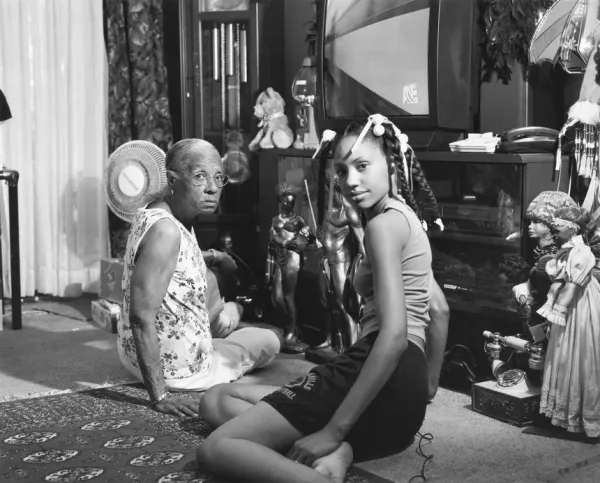When Good Intentions Cause Harm

Understanding Performative Allyship
In the wake of social movements like Black Lives Matter, the language of allyship has entered mainstream conversation. Brands issue solidarity statements. Influencers post black squares. Individuals rush to share anti-racism books or repost viral infographics. These gestures are often well-intentioned. But when disconnected from accountability or meaningful action, they can do more harm than good. This is the realm of performative allyship.
In this article, we explore what performative allyship is, how to recognise it, and why it matters. If you’re a non-Black ally seeking to support Black communities with integrity, this post is for you.
What Is Performative Allyship?
Performative allyship refers to actions taken to appear supportive of marginalised groups without doing the deeper work required to be truly supportive. These actions often prioritise the comfort or public image of the person performing them, rather than the needs of the people they claim to support.
Examples include:
- Posting about racial injustice but avoiding conversations with friends or family who express racist views
- Publicly sharing educational resources while failing to examine your own bias or privilege
- Speaking over or centring yourself in conversations meant to amplify Black voices
- Making a one-off donation or statement, then returning to silence when the news cycle ends
Performative allyship is not just about what you do. It’s about why and how you do it. The motivation is often rooted in being seen as “good,” “aware,” or “on the right side,” rather than making a genuine commitment to long-term justice.
Why Performative Allyship Is Harmful
Any awareness might seem better than none. But the dangers of performative allyship are real and far-reaching.
1. It Recentres the Ally
Performative allyship shifts focus back onto the ally instead of the communities who need support. It draws attention away from real issues like inequality, exclusion, and injustice, and places it instead on how someone looks or feels.
2. It Creates False Signals of Progress
Public gestures can create the illusion that change is happening when nothing meaningful has shifted. A company might post a diversity statement but fail to change biased hiring practices. An individual might quote a Black activist but stay silent when racism shows up in their own circle.
3. It Breeds Fatigue and Cynicism
For many Black people, waves of empty gestures can be exhausting and even retraumatising. Seeing people post passionately one week and disappear the next sends a clear message: this was never about true solidarity.
4. It Gets in the Way of Real Change
When performance is mistaken for progress, the harder work of reflection, action, and redistribution of power gets pushed aside. Performative allyship can crowd out more meaningful contributions.

5 Signs of Performative Allyship
If you’re serious about showing up well, it helps to check in with yourself. These five signs may suggest that your allyship is performative:
1. Your Actions Only Happen in Public
Do you only speak out when others can see it? True allyship often happens in private — in what you say at the dinner table, how you vote, how you hire, and what you choose to learn or unlearn.
2. You Prioritise How You Feel
If you feel hurt or defensive when someone calls out your actions, you might be centring yourself. Discomfort is part of the journey. Use it to grow.
3. You Expect Recognition or Praise
Allyship is not about applause. If you feel let down when your support goes unnoticed, ask yourself who you're really doing it for.
4. You Speak Over the People You Say You Support
Do you need to be the loudest voice in the room? Are you always offering your take on the issue? Real allyship means making space, not taking it.
5. You Stop When the Trend Fades
If your interest fades when the media moves on, it might be time to ask whether you’re committed to the work or just the moment.
How to Move from Performative to Authentic Allyship
No one gets this right all the time. Recognising performative tendencies is not about shame. It’s about choosing a different path. Here are five ways to shift your approach.
1. Listen More Than You Speak
Have you taken time to hear from Black voices? Are you learning from writers, artists, thinkers, and educators without asking them to teach you personally? Listening is a key part of showing up.
2. Be Willing to Be Uncomfortable
Allyship involves facing your own privilege and bias. It might mean realising that you’ve caused harm in the past. That’s okay. What matters is how you respond.
3. Invest in Black-Led Work
Support Black-led organisations, creatives, and community projects. That support can take many forms; financial, promotional, relational, or political. The goal is to redistribute resources and influence.
4. Take Accountability Without Shutting Down
If someone calls you out, don’t rush to defend yourself. Listen. Reflect. Apologise if needed. Being corrected is not a failure. It’s a step forward.
5. Let Your Private Actions Speak
What do you say when no one is watching? How do you challenge racism in your workplace or friend group? Are you committed to growing even when it’s inconvenient?
Why theBLKGZE Exists and How You Can Support
At theBLKGZE, we use culture, photography, story and research to hold space for Black lives and lived experience. We centre truth-telling, self-definition, and collective power. If you’re a non-Black ally looking to contribute with integrity, here’s how you can stand with us:
- Share our work, but go deeper than reposts
- Listen with care and curiosity
- Support Black photographers, writers and thinkers financially or publicly
- Apply what you learn in your daily life
Final Thoughts: Allyship Is a Verb
In a digital world where image is everything, it’s tempting to treat allyship like a brand. But this work is not about optics. It’s about real lives and real systems. Allyship is not a badge you wear. It’s a series of actions you return to, again and again.
So keep asking questions. Stay open to feedback. Take risks that cost something. And let your actions, not your aesthetics, speak for you.
You don’t need to be perfect. But you do need to be present.
Share on social
If this story sparked something in you, share it. Our voices are powerful, and when we lift each other up, we all see a little clearer.
Contribute
Through theBLKGZE, we don’t just reflect the world, we reshape it. Your story matters. Share it. Honour it. Hold space for others. This is where truth lives and vision leads.
We invite Black photographers to contribute in two meaningful ways through story and image.






